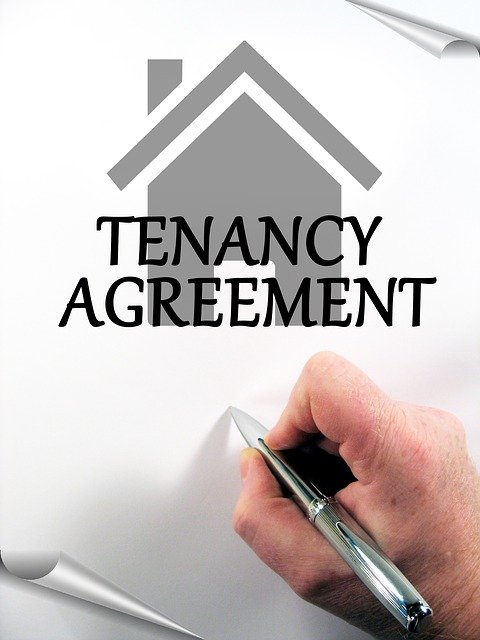
The tenancy agreement in Nigeria is a contract between the landlord and tenant. The contract sets out what each party’s responsibilities are, the duration of the rental agreement, amount of rent payable and other conditions.
It can be oral or written.
If it is not in writing then it will only be enforceable if there was an express agreement between both parties to that effect before any money changes hands.
In some cases where there has been no formal tenancy agreement (Check out our other blog on tenancy agreement samples) signed by both parties, one party may still have rights against another depending on how long they have lived at a property for example as this could show proof of having started off with an informal arrangement which later developed into a more formal arrangement over time.
A Tenancy Agreement isn’t required, but it’s good to have one because it sets out all of the things that you can do. If there is no Tenancy Agreement, then both people still have rights when renting property in Nigeria.
For example, if someone moves out and doesn’t pay rent for a month or two, then they might owe money for those months even though they didn’t sign an agreement about this.

Types of tenancy agreement
- Tenancy for a fixed term
- Periodic tenancy
- Tenancy at will
- Joint tenants
- Tenants in common
- Company tenancies
These are a few broad descriptions of the types of tenancy agreements we have. However, in this article, we will focus more on the residential tenancy agreement.
Residential tenancy agreement
Residential tenancy agreements allow landlords and tenants to agree on the terms of their living situation.
They can establish who is responsible for which costs, such as utilities or rent payments; what each tenant’s obligations will be like in regards to cleaning up after themselves; among other things that may need clarification between both parties before signing over custody rights.
This contract also protects all involved against any confusion about whether someone has paid their share of the lease – something everyone should strive towards!
Here are some reasons why you need to have this agreement
- A Residential Tenancy Agreement will help you avoid disputes with your landlord
- A Residential Tenancy Agreement provides a framework for the relationship between tenant and landlord
- A Residential Tenancy Agreement can be used to establish what are the rights of both parties in regards to rent, repairs, privacy, etc
- With a Residential Tenancy Agreement, there is less chance that either party will try to take advantage of the other because everything is written down and agreed upon at the beginning of tenancy
- If you have a dispute with your landlord over something not covered by the agreement then it goes before an arbitrator who decides on how much money each party should receive from one another
- The agreement establishes when notice needs to be given if one side wants out of their lease or rental agreement
Important contents of a tenancy agreement
- The name of the property
- Who is responsible for repairs and maintenance
- How much notice needs to be given before either party can end the agreement
- When rent payments are due and how they should be paid
- What happens if a tenant has not paid their rent on time or at all
- What happens when a tenant wants to leave early, who pays what costs such as utilities, etc.?

Should you worry about the tenancy agreement?
Tenants have rights. You should read the contract to see if it is good for you. It is best to get a lawyer to help you understand the contract and how it might affect you in the future.
You should always read through the contract before signing it. If you have any questions, ask someone who knows about these things!
What are your rights as a tenant?
The first and foremost right you have as a tenant is the right to live in your home peacefully. You also have the right to be safe and secure while living on the property, including being free from harassment by landlords or other tenants. If you are harassed, threatened or assaulted, it is important that you report this incident immediately so that law enforcement can take appropriate action.
Here are some of your rights as a tenant:
- Tenants have the right to live in a property that is safe and habitable
- Tenants should be given notice of any rent increases so they can plan accordingly
- Landlords must provide tenants with basic utilities such as water, electricity, and natural gas
- If you are having trouble paying your rent, talk to your landlord about making an arrangement or finding a new place to live
- Your landlord cannot enter your home without giving you 24 hours written notice first
- You have the right not to sign a lease if it doesn’t include all of the terms that were discussed during negotiations.
When you sign a tenancy agreement, it can be difficult to know what will happen if your landlord doesn’t live up to their end of the bargain.
This is especially true for people who are new to renting apartments or houses and may not have had any experience with this type of contract before.
If you want to make sure that there’s no confusion about how your property rights work in Nigeria, take some time now to read through the document carefully. You’ll find out all the rights and responsibilities associated with being a tenant on Nigerian soil as well as which party has more power when things go wrong between tenants and landlords.
Abbey Johnson has a Masters degree as an engineer and has over 3 years of teaching and research experience. He is happiest when on a bike and is also interested in electric energy and computer Science.
